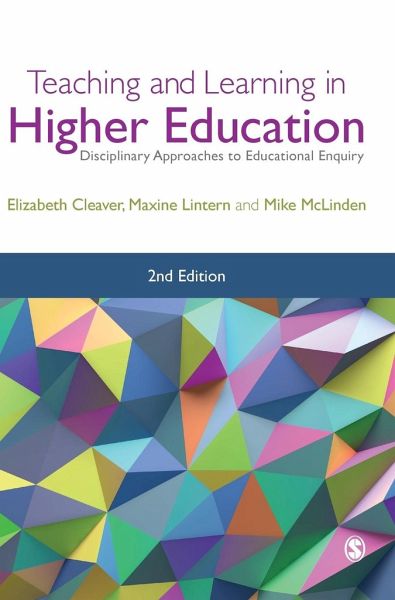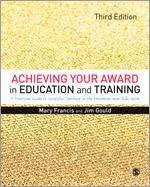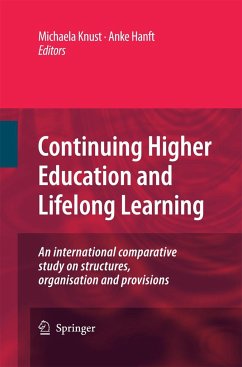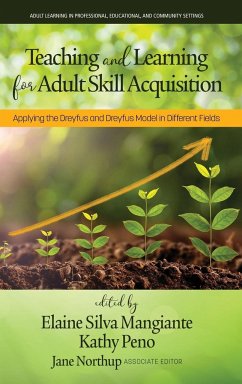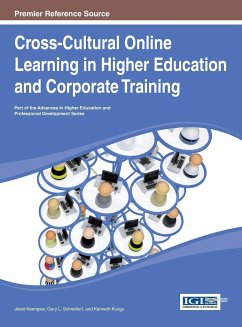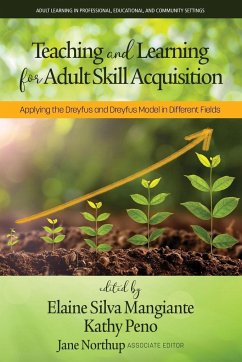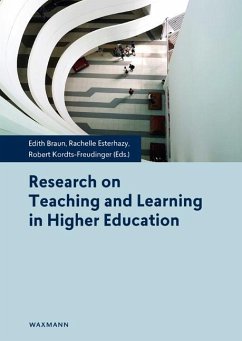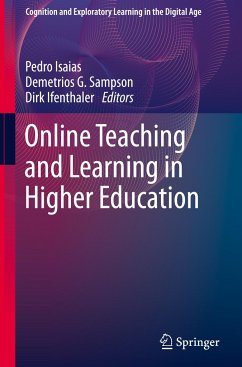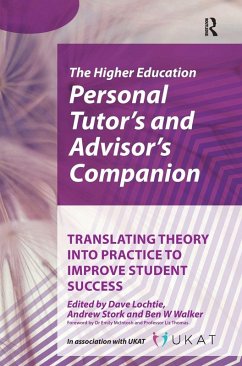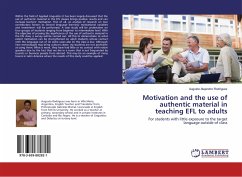Teaching and Learning in Higher Education
Disciplinary Approaches to Educational Enquiry
Versandkostenfrei!
Versandfertig in 1-2 Wochen
Weitere Ausgaben:

PAYBACK Punkte
69 °P sammeln!





This text explores best practice approaches to undertaking enquiry into learning and teaching in higher education for staff from all academic disciplines.
Prof. Elizabeth Cleaver is Professor of Learning and Teaching at the University of the West of England, UK (UWE) where she has built and leads the University's Academic Practice Directorate: the central hub for the support, development and enhancement of academic programmes and practice. Over a career spanning 23 years she has taught, written and researched in sociology and education. Her early academic career was in the discipline of sociology where she specialised in the area of youth transitions to adulthood (early works are published in name Kenyon). It was during this period that her interest in disciplinary teaching approaches, and the importance of not just thinking and researching sociologically, but teaching sociologically, began to grow. Following a six-year spell outside the HE sector, undertaking local and government-funded policy research and evaluations at NFER, she returned to higher education in 2008. This most recent stage of Elizabeth's career has focused on providing strategic leadership for curricular and pedagogic development and change in a range of contrasting higher education institutions. Elizabeth is a Principal Fellow of the Higher Education Academy.
Produktdetails
- Verlag: SAGE Publications Ltd
- Seitenzahl: 344
- Erscheinungstermin: 28. Juli 2018
- Englisch
- Abmessung: 250mm x 175mm x 23mm
- Gewicht: 774g
- ISBN-13: 9781526409591
- ISBN-10: 1526409593
- Artikelnr.: 52821762
Herstellerkennzeichnung
Libri GmbH
Europaallee 1
36244 Bad Hersfeld
gpsr@libri.de
'This book makes a timely contribution to debate and developing practice in critical educational inquiry, specifically in the context of research intended to enhance teaching quality, both as a laudable aim in itself and in response to external drivers such as the TEF. The central thrust of the book acknowledges the challenges for non-HE researchers coping with the 'strange land of higher education studies' and the importance of locating academic research within the discipline as a starting point. The authors make a powerful case for critical inquiry as a means of building disciplinary and cross-disciplinary communities and its potential to drive institutional culture change.'
Fran Beaton
Fran Beaton
Für dieses Produkt wurde noch keine Bewertung abgegeben. Wir würden uns sehr freuen, wenn du die erste Bewertung schreibst!
Eine Bewertung schreiben
Eine Bewertung schreiben
Andere Kunden interessierten sich für




